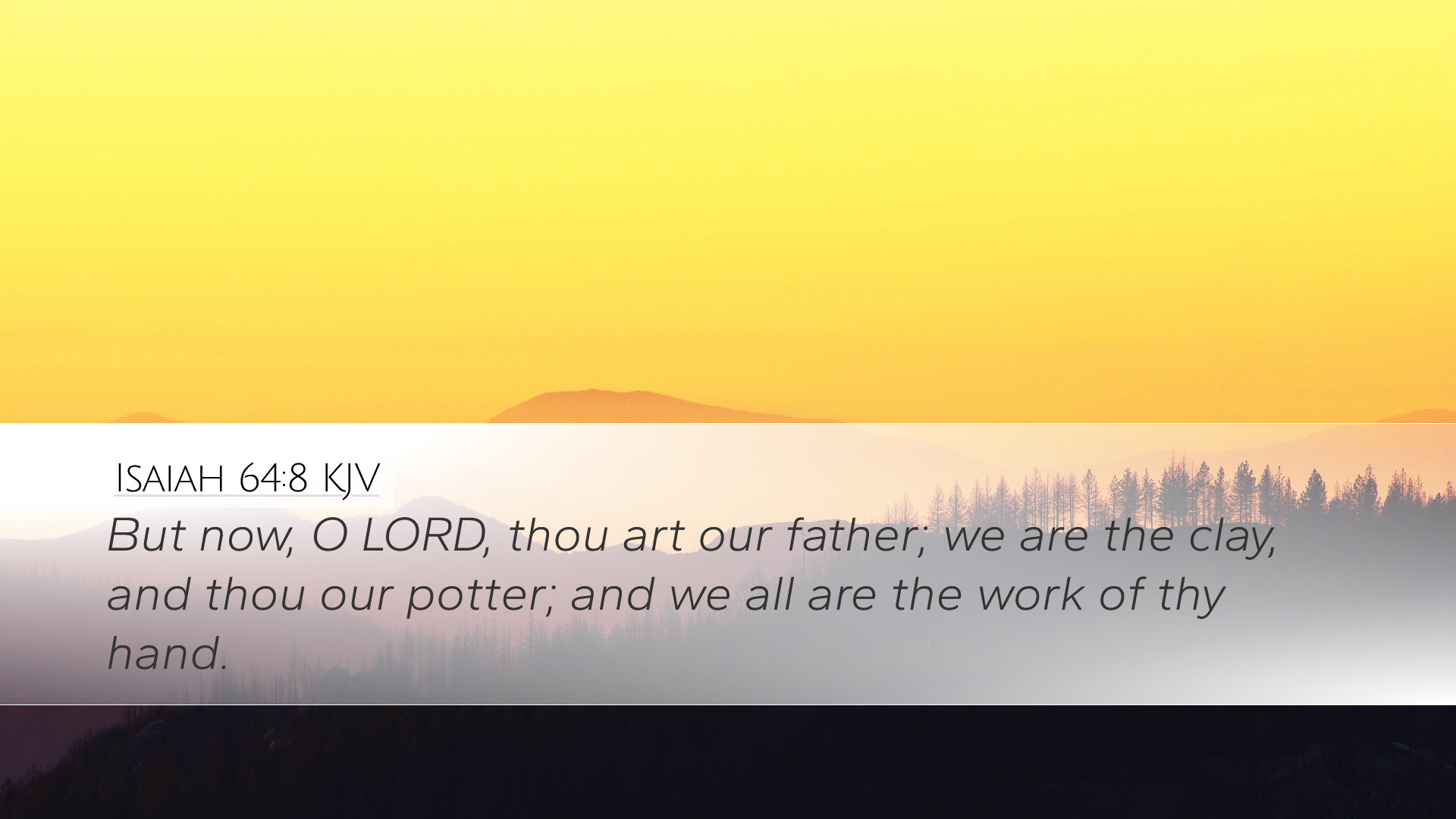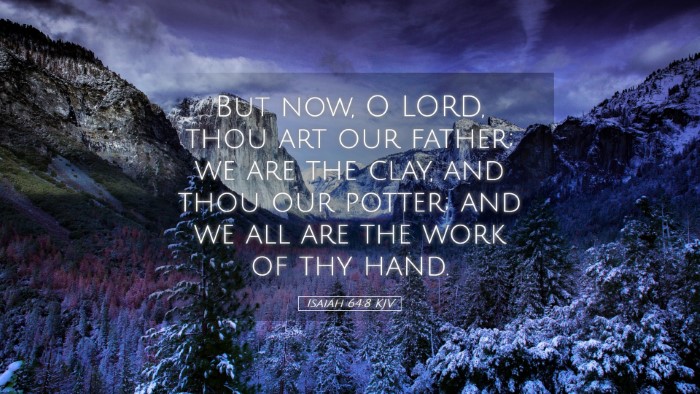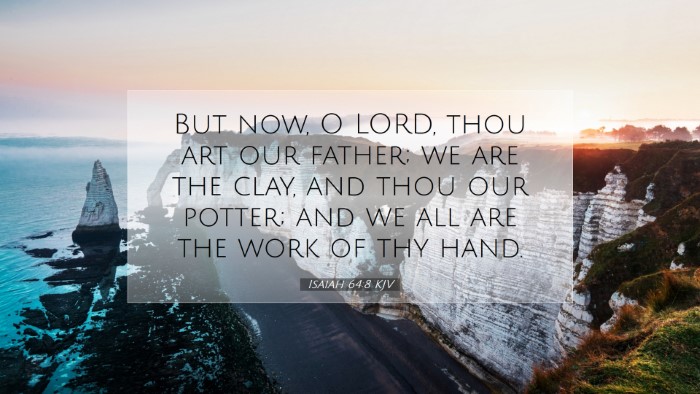Commentary on Isaiah 64:8
Text of Isaiah 64:8: "But now, O Lord, thou art our father; we are the clay, and thou our potter; and we all are the work of thy hand."
Introduction
This verse from Isaiah encapsulates a profound theological truth about the relationship between God and humanity. It reflects a deep awareness of human dependence on divine authority and creativity. This commentary aims to elucidate the rich insights from several public domain commentaries, drawing from the works of Matthew Henry, Albert Barnes, and Adam Clarke.
Theological Significance
The imagery of potter and clay is deeply resonant in the biblical tradition. It emphasizes God's sovereignty, creativity, and the inherent value of human life. Matthew Henry notes that this relationship highlights not only God's power in shaping humanity but also human vulnerability and the need for divine guidance. The believer's acknowledgment of God as the Father aligns with a recognition of His authority and care.
Exegesis of the Verse
According to Albert Barnes, "But now, O Lord," serves as an invocation, a plea for recognition of God's role amidst adversity. The acknowledgment of God as 'our Father' signifies an intimate relationship, suggesting affection, protection, and responsibility. The term 'clay' metaphorically suggests that humans are malleable, formed and reformed according to God’s will.
- God as Potter: This metaphor establishes God’s ultimate authority over creation. He shapes and molds His creation as He sees fit. Adam Clarke comments on this by emphasizing that the potter has full control over the clay, thus underlining God's sovereign will.
- Humanity as Clay: The identification of humanity as clay serves to remind believers of their humble origin. It calls for humility and readiness for transformation, reflecting the ongoing work of God in the lives of believers.
Historical Context
Isaiah’s context involves a plea for deliverance during a period of turmoil for the Israelites. The verse emerges from a prayer, recognizing God's past acts of salvation and expressing the urgency for divine intervention. As noted by Clarke, understanding the historical backdrop helps interpret the emotional intensity behind the plea for God to act as Father and Potter amidst suffering.
Practical Applications
This verse offers various practical applications for pastors, students, and theologians:
- Dependence on God: The passage encourages believers to foster a deeply dependent relationship with God, inviting them to trust in His plans and purposes.
- Embracing Transformation: Just as clay can be molded, materials for spiritual growth must be embraced by believers, allowing God to shape their character and actions.
- Community and Identity: The communal aspect of “we are the clay” stresses the importance of togetherness in understanding God's work in the life of the Church as a whole.
- Encouragement in Prayer: The invocation in the text provides a template for prayer that acknowledges God’s authority while seeking His continued guidance and support.
Conclusion
Isaiah 64:8 serves as a profound reminder of humanity's relationship with God. The imagery of God as the potter and humanity as clay encapsulates the themes of sovereignty, transformation, and dependence. By reflecting on this verse, believers are prompted to embrace their identity as creations of God, open to His shaping hand. In light of insights drawn from the commentaries of Matthew Henry, Albert Barnes, and Adam Clarke, pastors, students, and theologians can find both encouragement and rich theological depth in this poignant scripture.


